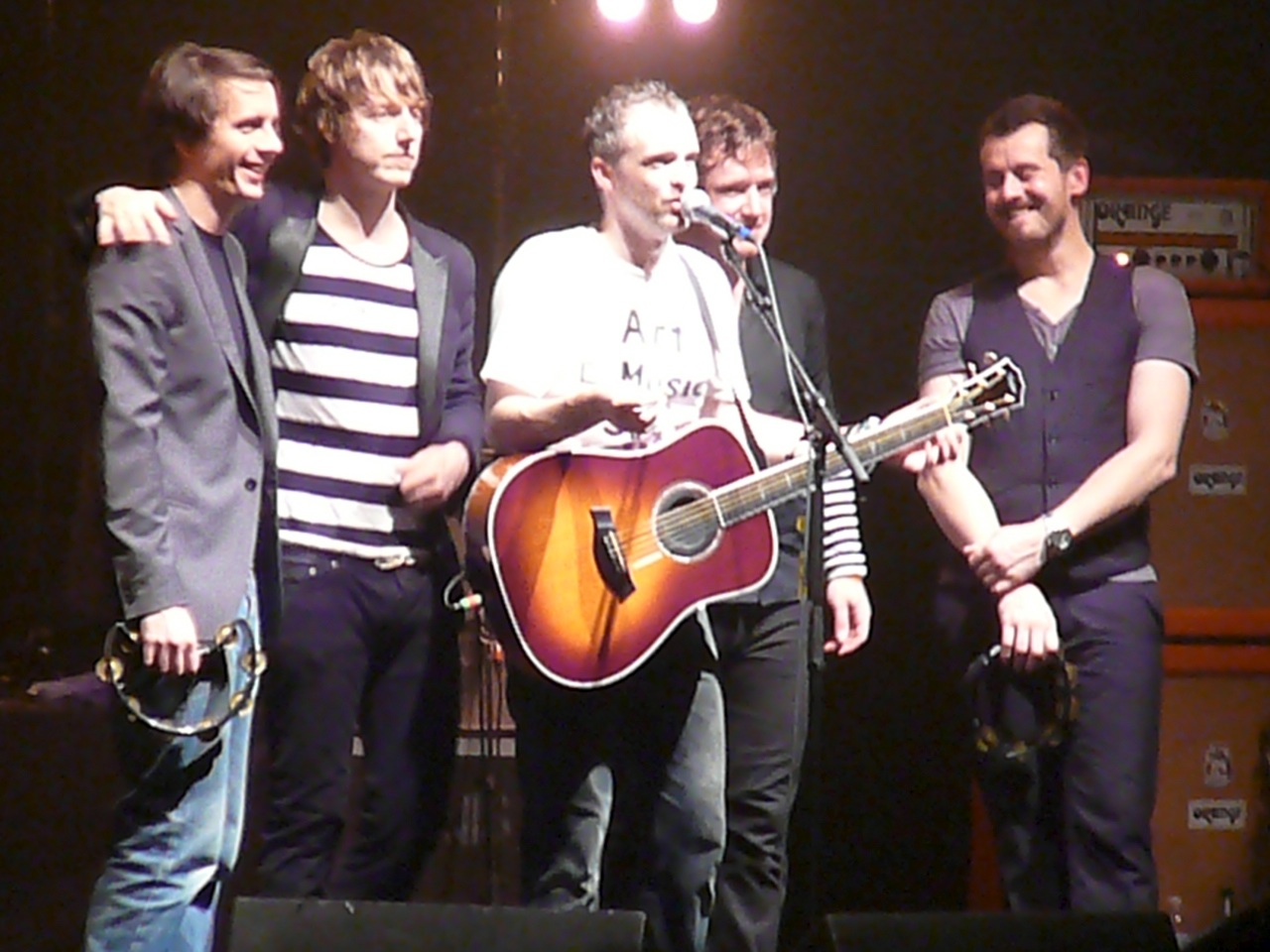
Post-Britpop
Post-Britpop is an alternative rock subgenre and is the period in the late 1990s and early 2000s, following Britpop, when the media were identifying a "new generation" or "second wave" of guitar bands influenced by acts like Oasis and Blur, but with less overt British concerns in their lyrics and making more use of American rock and indie influences, as well as experimental music.[1][2][3][4] Bands in the post-Britpop era that had been established acts, but gained greater prominence after the decline of Britpop, such as Radiohead and the Verve, and new acts such as Travis, Keane, Snow Patrol, Stereophonics, Feeder, and particularly Coldplay, achieved much wider international success than most of the Britpop groups that had preceded them, and were some of the most commercially successful acts of the late 1990s and early 2000s.
History[edit]
Origins[edit]
From about 1997, as dissatisfaction grew with the concept of Cool Britannia and Britpop as a movement began to dissolve, emerging bands began to avoid the Britpop label while still producing music derived from it.[1][6] Bands that had enjoyed some success during the mid-1990s, but did not find major commercial success until the late 1990s included the Verve and Radiohead. After the decline of Britpop they began to gain more critical and popular attention.[1] The Verve's album Urban Hymns (1997) was a worldwide hit and their commercial peak before they broke up in 1999, while Radiohead – although having achieved moderate recognition with The Bends in 1995 – achieved near-universal critical acclaim with their experimental third album OK Computer (1997), and its follow-ups Kid A (2000) and Amnesiac (2001).[14]
Significance[edit]
Bands in the post-Britpop era have been credited with revitalising the British rock music scene in the late 1990s and 2000s,[46] and of reaping the commercial benefits opened up by Britpop.[2] They have also been criticised for providing a "homogenised and conformist" version of Britpop that serves as music for TV soundtracks,[1] shopping malls, bars and nightclubs.[2]